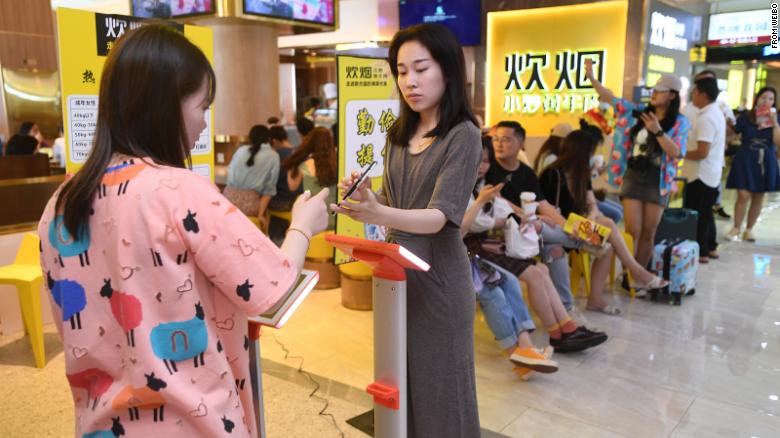
How would you feel when you visit a restaurant for a bite, and a scale greets you at the entrance? Most people would feel preposterous, and some would even feel insulted at being treated that way when they are paying for their food. But this ridiculous incident actually happened in China. Last August, a famous food chain in China placed scales in front of their stores and allowed customers to weigh themselves, and suggested menus before they entered based on their weight and the calories of different menus. This shocked the customers. Additionally, there were signs saying ‘Do not waste food’ and ‘Let’s live thriftly and earnestly’. Surprisingly, the actions of the restaurant were caused by the President Xi Jinping’s speech to not waste food. Why did the leader say such a thing? The reason is because China is currently undergoing a massive food shortage.
The Current Food Situation in China
On August 11th, Chinese President Xi declared a so-called ‘leftover war’. According to the Chinese Academy of Science, each Chinese person did not finish an average of 93 grams of food per meal in 2018. In addition, 18 million tons of leftovers were found in China as of 2015, which is enough for up to 50 million people to eat for as long as a year. According to the Chinese Academy of Social Sciences, the three major crops, mill, rice, and corn will be 130 million tons short in total by 2025 in China, causing a serious imbalance in food demand and supply. The Chinese custom of not finishing food and the culture of serving plentiful food to guests in order to not lose face was criticized by the government to reduce the problem of China's food shortage. As a result, there have been various campaigns to reduce leftovers in China, such as the "N-1" movement that encourages people to order one less dish than the number of people. According to The New York Times, a Chinese school even issued a rule that takes the opportunity of scholarships away from students who produce more than a certain amount of leftovers. As such, the food shortage in China is perceived as a serious situation. What is the real reason behind the food shortage in China?
The Cause of the Food Shortage
Foreign Relations
China is a country that imports 20~30 percent of their total food. They import $75.3 billion worth of food each year from countries such as Brazil, the United States, Canada, and New Zealand. Recently, however, China saw a decrease in the trade smaller than before due to the ongoing trade war with the United States. In 2017, food worth $18.1 billion was imported from the United States, and in just two years, only $5.5 billion worth of food was imported, which is about a third of the current imports. Realizing this situation, China established a national grain security system. They imported 910,000 tons of wheat in June, 197% more than the same period a year earlier, and purchased much corn and sorghum over the previous year. But if this relationship with other countries continues, especially the United States, it is only a matter of time before the food stocked in this way will come to an end. Furthermore, the COVID-19 has also occurred this year, limiting exports to various countries, and making it difficult to trade with China, the country where COVID-19 occurred.
Some Other Affects
Foreign relations are not the only cause of China's food shortage. Recently, China has gone through various disasters. First, heavy rains that lasted for two months from June and nearly led to the collapse to Sansha Dam caused serious flooding in the southern part of China, where rice paddies in China are concentrated. Because of flooding, the China National Grain and Oil Information Center predicts that China will be short of 25 million tons of corn in 2019 and 2020. To make matters worse, a swarm of locusts from Laos has spread in China's southern provinces. The swarms of locusts were so numerous that 30 to 40 locusts are found on each strand of corn, and as of August 17th, they are reported to have caused damage to 106 square kilometers wide across 11 prefectures in Yunnan Province. Although the Chinese government is making hard efforts to exterminate locusts, China's Ministry of Agriculture and Rural Affairs predicted that the damage will be more serious since this year’s locusts came in earlier than 2019. Also, the number of pigs in China dropped sharply in 2018 due to the African Swine Fever(ASF). For the Chinese, pork is the main source of meat. As a result, the price of pork soared up to 86 percent in 2018. Chinese government is carefully eyeing signs of swine fever that is again appearing in several areas this year.

The food shortage in China may have been a matter that would have surfaced sooner or later due to these diverse factors combined with the Chinese culture of saving face. To solve this problem, people are holding various campaigns and looking for ways to reduce the amount of leftovers in their everyday lives. Even people who make profits by broadcasting themselves eating large portions of food were warned against wasting food. However, despite China's efforts to solve its food shortage, there are still people who do not participate, saying that it is one’s free will to eat as much as they want. The way how China solves the serious problem of food shortages while guaranteeing individual freedom is a point that we all should focus on. CAH sincerely wishes that China can solve its food shortage in a wise way.

